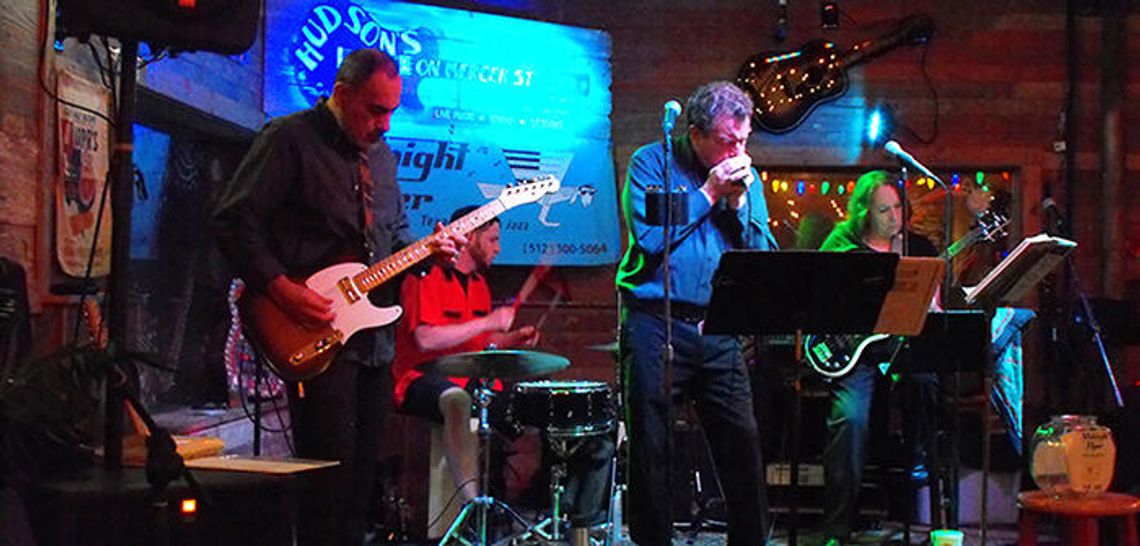For as long as he can remember, Jim Luketich’s soul has yearned for music.
Even at an early age, Luketich always had a feeling he should play whatever instrument was at hand.
Perhaps it was fate that Luketich, a Dripping Springs resident, discovered in January that his biological father, who he never knew growing up, was a sibling of 1950s era Honky-Tonk legend Stonewall Jackson. Luketich’s birth father, who was in the military following World War II, had also been a notable musician himself.
Through DNA testing, Luketich and Mary, his wife, obtained a cornucopia of answers that had eluded them for decades.
“You can’t imagine the way it makes you feel when you finally find that mystery in your life that you never thought you’d find the answers to,” Luketich said. “It makes you want to cry. It’s hard to describe how meaningful it is.”
The saga began in late 2018 when their daughter purchased a DNA testing kit for them as a holiday gift.
His wife Mary, as it turned out, had been adopted at birth, something she didn’t know. Through the results, Mary found she had a half-Chippawa lineage. She also found out her birth mother, who was in her late 80s, was living in Minnesota near the Canadian border.
Before long, the Luketichs reached out to Mary’s biological sister, who guided them on a visit to Minnesota to see her birth mother, who passed away weeks after the meeting. During the visit, Mary met numerous cousins, nieces and nephews she had no idea existed.
“It was a real miracle because she had no idea about any of that,” Jim Luketich said.
It wasn’t long before Luketich began his own journey of personal self-discovery.
In mid-February, a woman reached out to Luketich who claimed to be his biological sister. She found out about him after the DNA testing company sent emails linking the connection between them.
Before long, their discussion turned to Luketich’s birth father, Wade Jackson, who is 90 years old and living outside of Nashville, Tennessee. Jackson and Luketich connected with each other over the phone several weeks later.
Luketich discovered Jackson was a non-commissioned officer (NCO) in the U.S. Army in post-war Germany when he met Luketich’s mother, Maria, who was a World War II refugee working at an army base in Stuttgart.
The duo met at an NCO club Jackson had been performing at. Jackson, as it turned out, played the fiddle and sang with many of the bands that performed there. The two had a brief affair before Jackson was sent back to the U.S.
“It was a, ‘ships passing in the night,’ kind of thing,” Luketich said.
Maria never told Luketich about his birth father before she passed away several years ago. George Luketich, a Sgt. Major in the Army who married Maria and moved to the U.S. years ago, helped raise Jim.
Jackson never knew about the son he fathered. Both Jackson and Luketich, however, were shocked to learn music was the bridge that bound them together.
Jackson, who spent 18 of his 20 years in the military playing music for fellow GIs, toured across the country with various bands playing old-style country music. It was in the 1950s that Jackson wrote the song “Don’t Be Angry” for his brother, Stonewall, who catapulted his way to success on the country-music scene. Jackson’s own talents eventually allowed him play at the Grand Old Opry in Nashville.
Upon moving to Texas in the 1980s, Luketich toured around with various bands that played a wide variety of styles ranging from the Blues to Country. While playing with a band in Florida, Luketich said he often played the harmonica during covers of “Don’t Be Angry,” unaware of the connection.
“It was the most amazing experience for both of us,” Luketich said. “I’m almost 70 and I never had any idea I had family like this.”
Plans are now in the works for Luketich to travel this summer to Nashville to meet Jackson face-to-face. Luketich plans to bring his bass guitar and harmonica, something he said Jackson will “get a tickle out of it.”
“It’s a big, emotional thing when you find you’ve got a whole family you have no idea about,” Luketich said.











